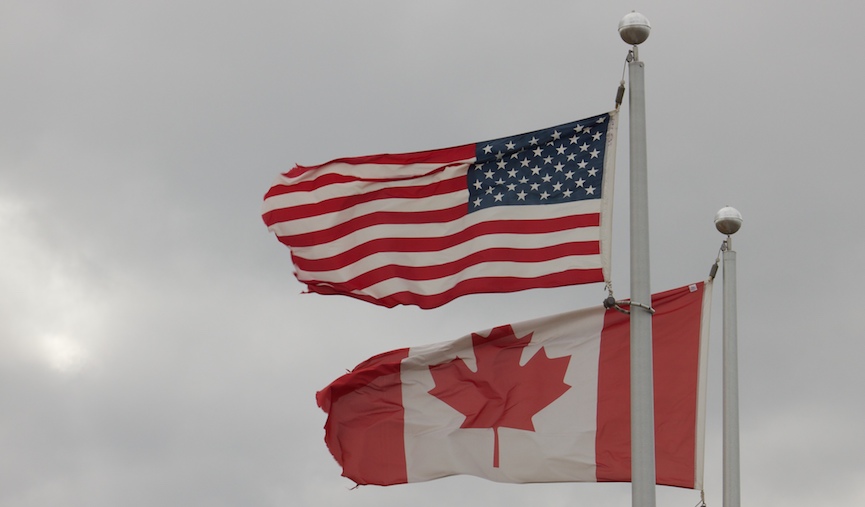While television and computer screens, movie theatres and books in Canada are largely dominated by American products, and the mainstream news media increasingly lacks any critical analysis, we are being told that the United States-Mexico-Canada Agreement (USMCA) contains a significant cultural exemption for Canada.
Imagine that, three neoliberal leaders (U.S. President Donald Trump, Canadian Prime Minister Justin Trudeau, and Mexican President Enrique Peña Nieto) agreeing to protect “our” culture in a “free trade” agreement.
On October 1, CBC reported, “Unchanged from the original version of NAFTA, cultural exemptions will remain in the new deal, according to senior Canadian sources.”
That article also notes, “This particular segment became a Canadian must-have, Trudeau argued, because otherwise it could enable American companies to buy Canadian newspapers or TV stations.”
More specifically, the Government of Canada’s website states, “Without a cultural exception, federal and provincial tax credits and program funds to support our newspapers and magazines, book publishers and producers would be at risk.”
It adds, “The cultural exception also protects Canada’s broadcasting system, ensuring sustained investment in content created and produced by fellow Canadians.”
But Duncan Cameron, the president emeritus of rabble.ca, comments in this column that, “The false claim of ‘Canadian cultural exemption’ is back.”
Cameron says, “That would be the provision where Canada asserts its right to make investments in cultural industries … and where the U.S. gets to retaliate in kind against any sector it chooses to single out (Article 32.6: 4) if Canada does provide cultural subsidies! Little wonder the federal government has been so reluctant to make any investments in culture.”
Michael Geist further comments, “While the resulting deal has garnered applause from many culture lobby groups (music, magazines, publishers, ACTRA), the reality is that the government did not obtain a full cultural exception.”
He explains that the USMCA allows the U.S. shopping channel QVC to be launched in this country and for Bell Canada to profit from selling commercial time access to Canadian viewers for Super Bowl games (rather than losing that revenue when U.S. ads are played in this country) and for the National Football League to further profit from those broadcasts (when Bell pays them with that commercial revenue for the right to broadcast those games in Canada).
Geist highlights, “The reality is that the USMCA includes two exceptions to the exception, both of which use the treaty overrule regulatory decisions of the supposedly independent Canadian Radio-television and Telecommunications Commission.”
And Friends of Canadian Broadcasting cautions, “In January of 2017, FRIENDS discovered a loophole in the Income Tax Act that rewards Canadian businesses who advertise with Google, Facebook, YouTube, and other foreign players by allowing them to claim deductions that should be reserved for advertisers who work with Canadian media.”
It adds, “This loophole siphons more than $5 billion in advertising revenue away from Canada’s news organizations each year, slowly killing them, with massive implications for our culture and democracy.”
Friends conclude, “Unfortunately, the new USMCA contains language that could stymie our efforts to close the loophole that is killing Canadian journalism.”
The Trudeau government says, “The general exception for culture further demonstrates that economic liberalization can be achieved while maintaining a strong sense of national identity and cultural sovereignty.”
But Geist says, “Make no mistake: the USMCA represents a surrender of the independence of Canadian broadcasting and copyright policy with exceptions to cultural regulation that may be more significant than any found in previous Canadian free trade agreements.”
And Cameron notes, “The late Mel Hurtig, a foremost publisher, authored his first book about the 1988 Canada-U.S. Free Trade Agreement (FTA), the trade deal that NAFTA replaced. The Betrayal of Canada was a number 1 bestseller. The USMCA deal awaits a sequel: The Further Betrayal of Canada.”
Cultural independence and cultural protections may not be so unhindered by neoliberalism as the Trudeau government would have us believe.
Brent Patterson is a political activist and writer.
Image: tuchodi/Flickr
Help make rabble sustainable. Please consider supporting our work with a monthly donation. Support rabble.ca today for as little as $1 per month!




